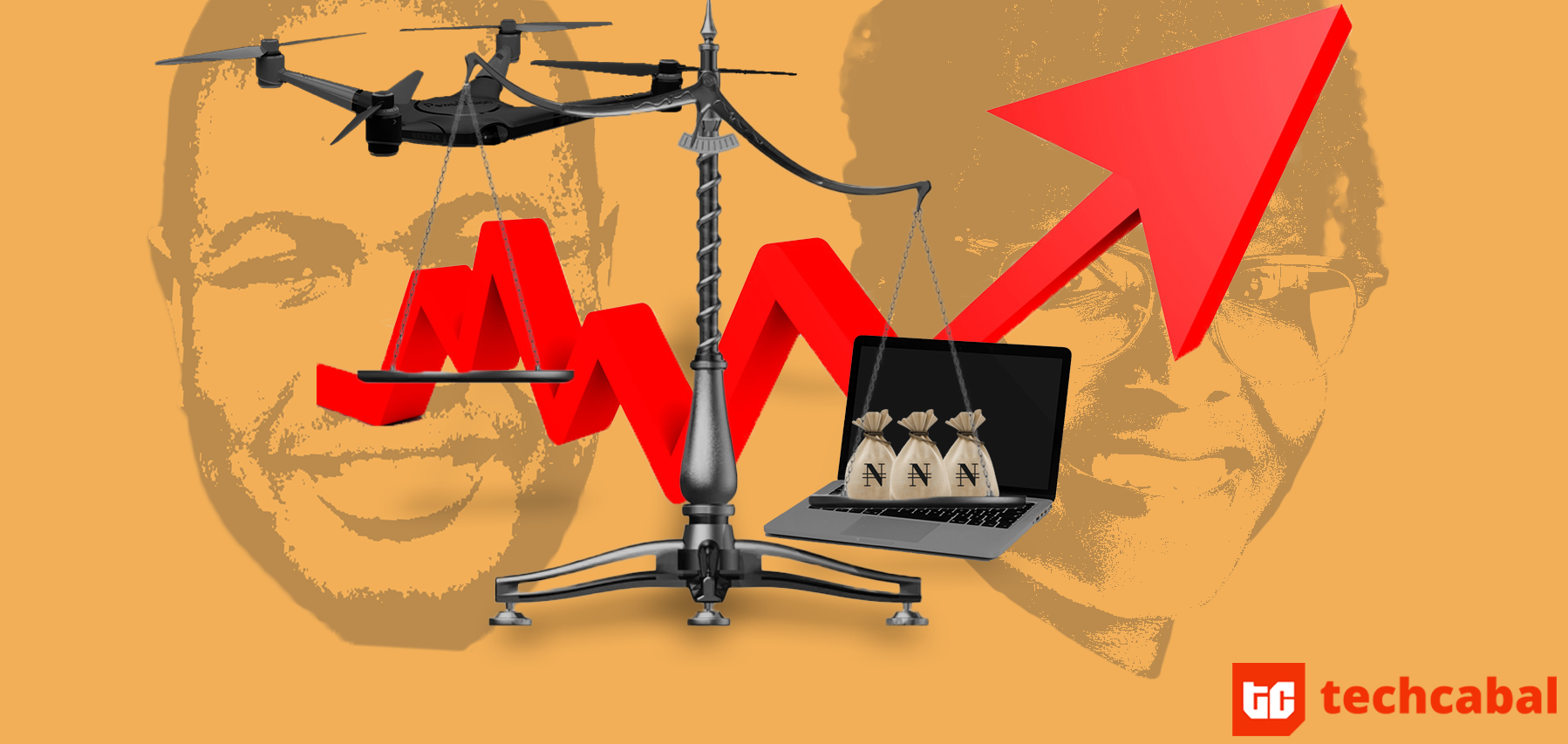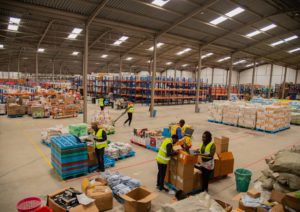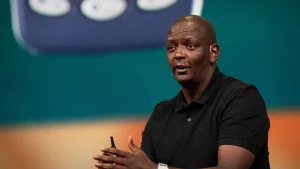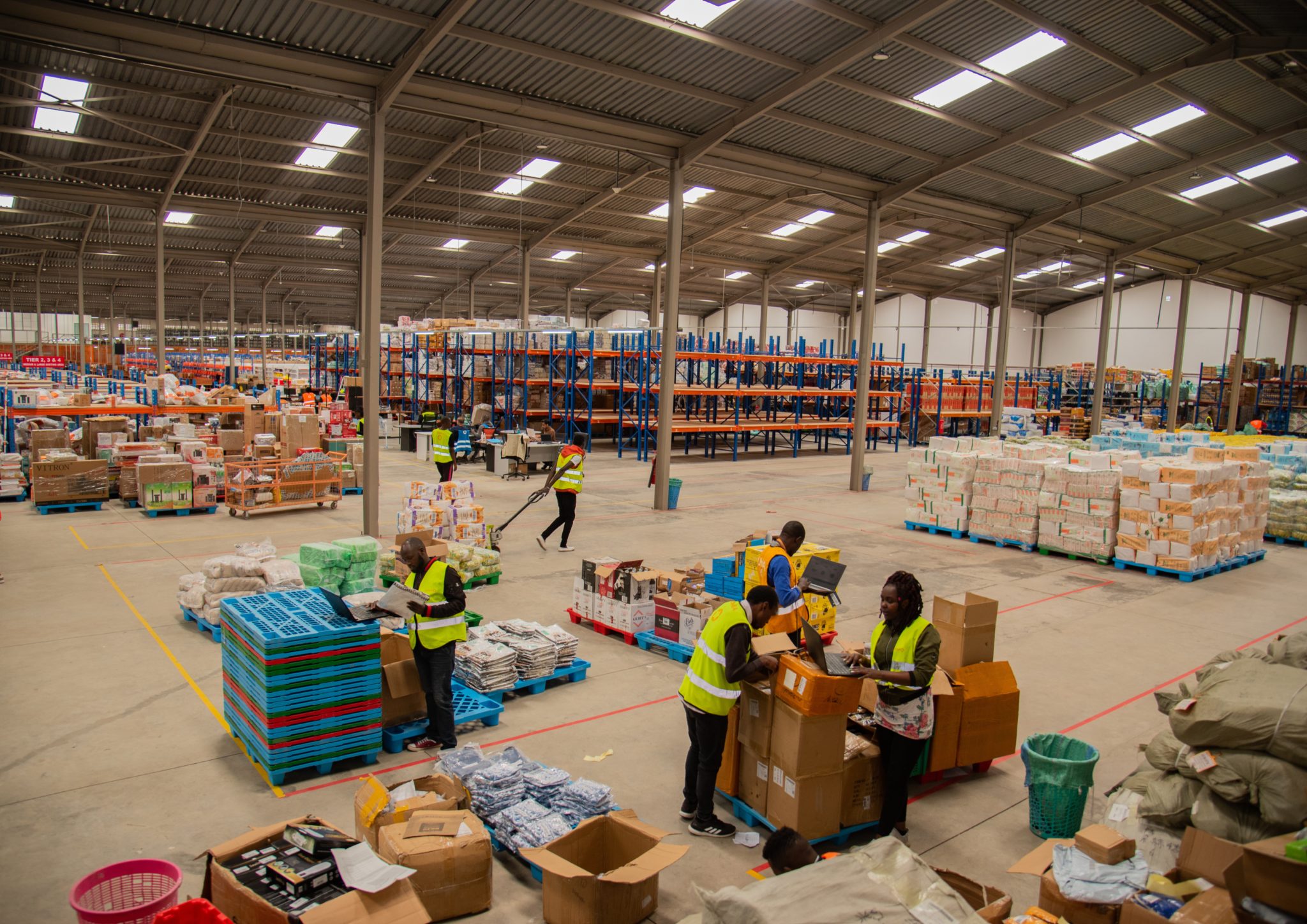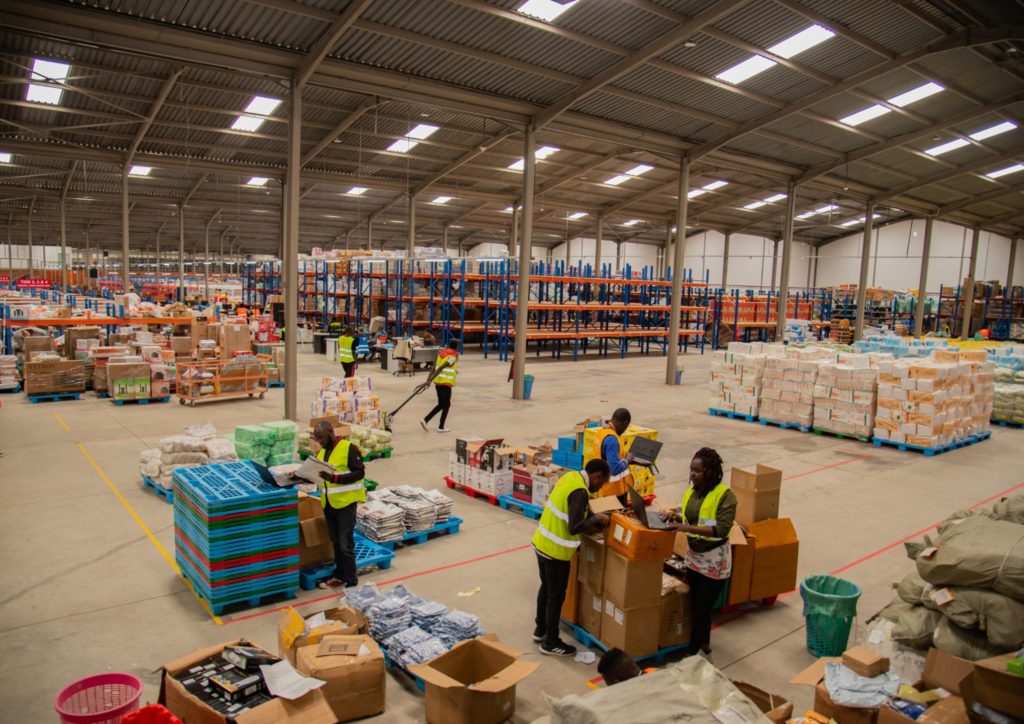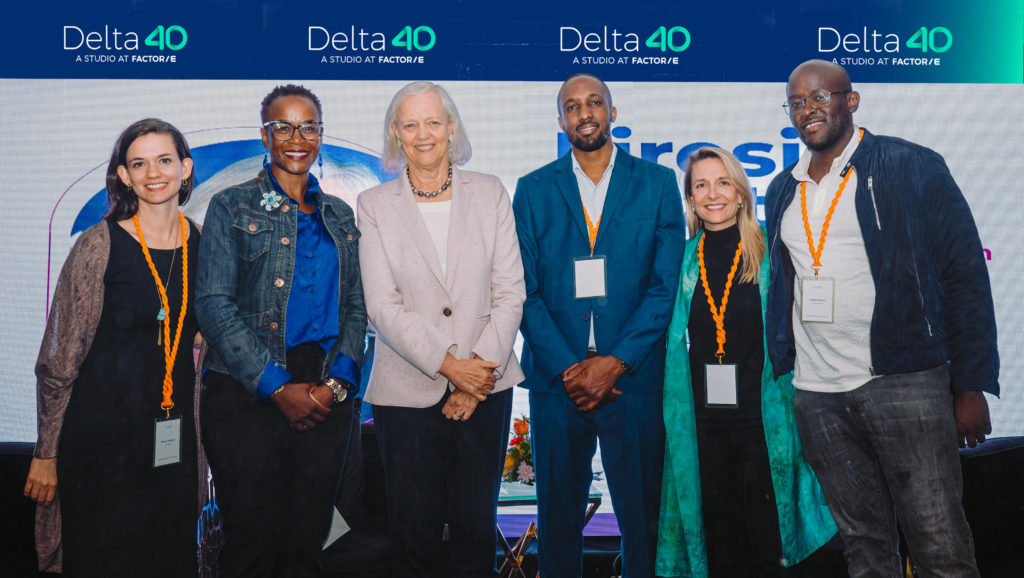Venture capital firms desire merry returns on investment. Placing good bets in a business environment like Nigeria’s requires a flexible yet consistent philosophy.
For Microtraction, the early-stage venture capital firm, two principles are fundamental: finding remarkable technical founders and providing hassle-free support.
So far, it appears to be working out. The firm is on a hot streak, having secured deals in startups positioning to be first-movers in various sectors. Founded in July 2017, Microtraction has invested in over twelve companies. One of their more recent investments, Bit Sika, is its first push outside Nigeria. They’ve rounded up a busy 2019 by backing Festival Coins, an “event technology company.”
“We have seen over a thousand applications since we launched,” Dayo Koleowo, partner at Microtraction, says to TechCabal. “We check all of them.” He came on board in August 2017, just a month after the fund launched.
He is one of three partners at the firm. Microtraction’s investment committee (IC) evaluates potential investments by tapping into each partner’s expertise and business experience. They also leverage networks of Limited Partners (LPs) and other venture capital firms.
From Cowrywise and Riby to 54gene and Allpro, Microtraction’s portfolio cuts across diverse tech sectors. Fintech has been the boom for a few years. But wherever viability flashes, Microtraction’s inclination has been to green-light a first check.
An MVP and a remarkable founder
If you are a founder, Microtraction wants to be the firm offering your first investment – your pre-seed, catalytic capital, according to Chidinma Iwueke, another partner at Microtraction.
Iwueke is responsible for evaluating your drive, vision, industry expertise and, crucially, the connection between the technical and soft sides of your product.
“A product has to come first before the investment,” she emphasizes.
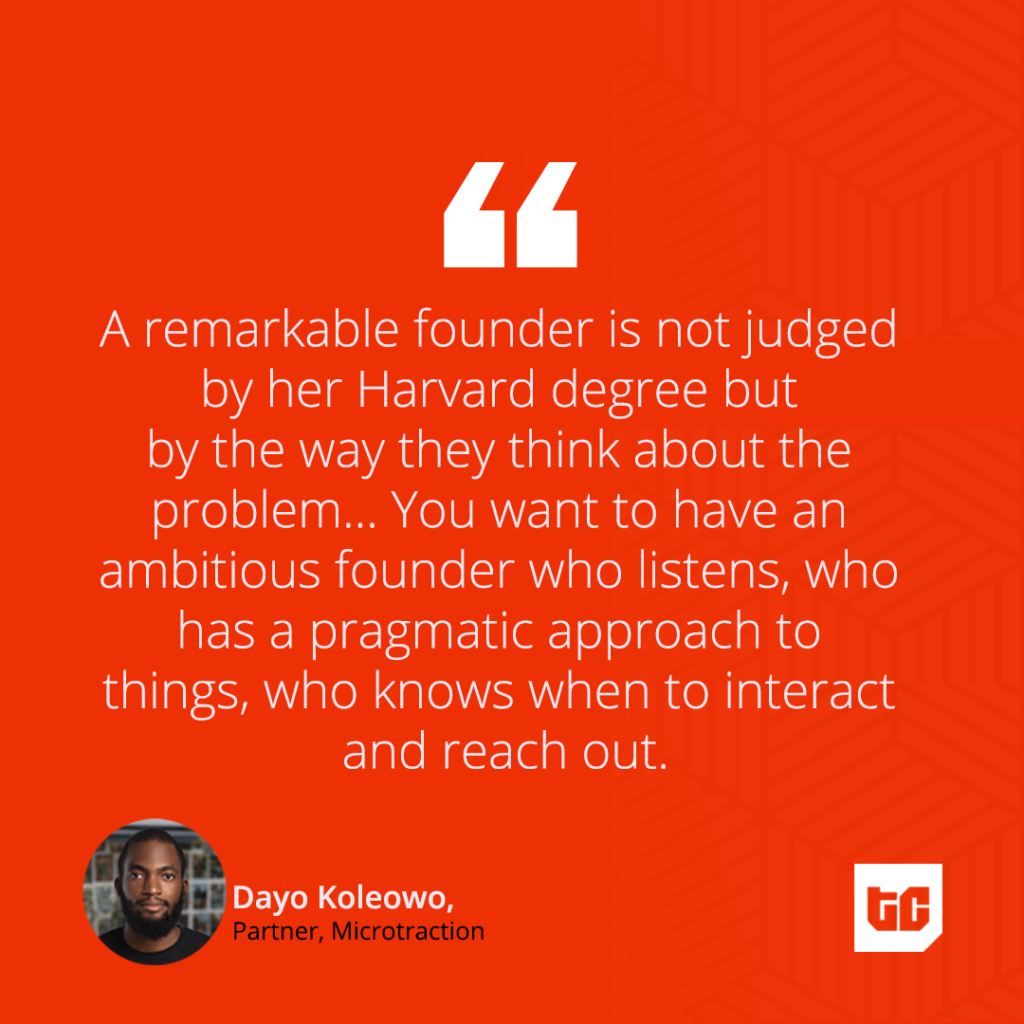
Beyond having a minimum viable product, Microtraction pays critical focus on the people behind the product. A remarkable founder is not judged by her Harvard degree but by “the way they think about the problem,” Koleowo says.
“You want to have an ambitious founder who listens, who has a pragmatic approach to things, who knows when to interact and reach out.”
A cordial relationship
For them, investing in founders entails building a relationship. “It’s like a marriage,” Iwueke says.
Henry Nnalue knows all about this pre-investment bonding process. He had known Yele Bademosi since 2016, about a year before the latter founded Microtraction.
When Nnalue got the idea for Schoolable, a company providing financial infrastructure for education, Bademosi’s keenness and understanding of the product’s value translated into a $15,000 investment agreement reached in January 2018. No formal pitch sessions. No hassles.
Microtraction’s first check is for a 7.5% equity stake. It is followed by an additional $50,000 convertible note at a $1 million valuation cap. The second tranche is subject to showing “significant progress” after the initial investment. (Nnalue’s Allpro, Schoolable’s parent company, did not get this follow-on investment)

This procedure has largely been retained. A founder with a viable product logs on to the Microtraction website and fills a form. The fourteen assessment questions are designed to appreciate the level of traction (hence the name) gained. Applications are open year round.
With an internet connection and a phone, you submit your pitch and get a response in no more than 10 days. No middle man required. Provided you are prepared to answer questions about, among other things, how you split equity with co-founders.
From passing IC to making YC
One of Microtraction’s emerging successes is BuyCoins, a cryptocurrency trading platform. It was one of over 60 startups to launch at YCombinator’s 2018 demo day. Interestingly, it is one of at least three Microtraction portfolio companies (Wallet and Cowrywise also) to get on the accelerator programme. What’s the magic formula?
Koleowo says Microtraction aims to be a global company capable of attracting founders that can impact the world. Part of achieving that is mirroring top-class evaluation criteria employed by companies like YC. For example, startups under consideration should have a founding team of at least two members.
“YC is not the be-all,” he notes, stressing that a lot of YC companies have failed. However, his firm wants to be able to spot startups that would have fit the accelerator’s famed programme. Microtraction has Michael Seibel, the YC chief executive officer, onboard as a global advisor and investor. Ajiboye, the BuyCoins founder, told TechCabal: “Yele [Bademosi] was very helpful during the [YCombinator] process, he went through our application and gave valuable advice.”
But there are no back doors. Each Microtraction-backed startup accepted into YC’s accelerator programme receives Microtraction’s support for customer formation, product design and other aspects, but ultimately has to go to San Francisco and show all working.
Emphasis on technical founders
“They didn’t necessarily have a product at the time,” Koleowo says of Microtraction’s journey with Buycoins. “But you could tell these folks were up to something.”
Timi Ajiboye and Ire Aderinokun, Buycoins’ founders, had garnered experience building or working in tech. Koleowo says even though he didn’t have direct interactions with the duo at the time (Bademosi did), he was convinced of their “capacity to execute” after an evaluation, given that “building a cryptocurrency exchange is not like building a Tinder app.”
He is quick to point out that not having an MVP is rather the exception, not the rule. A viable product is necessary, as is a technical co-founder.
A necessary gamble
None of that guarantees success though. Startup founders still make lots of mistakes. A great number are fresh out of school, drifting towards entrepreneurship because they had few alternatives.
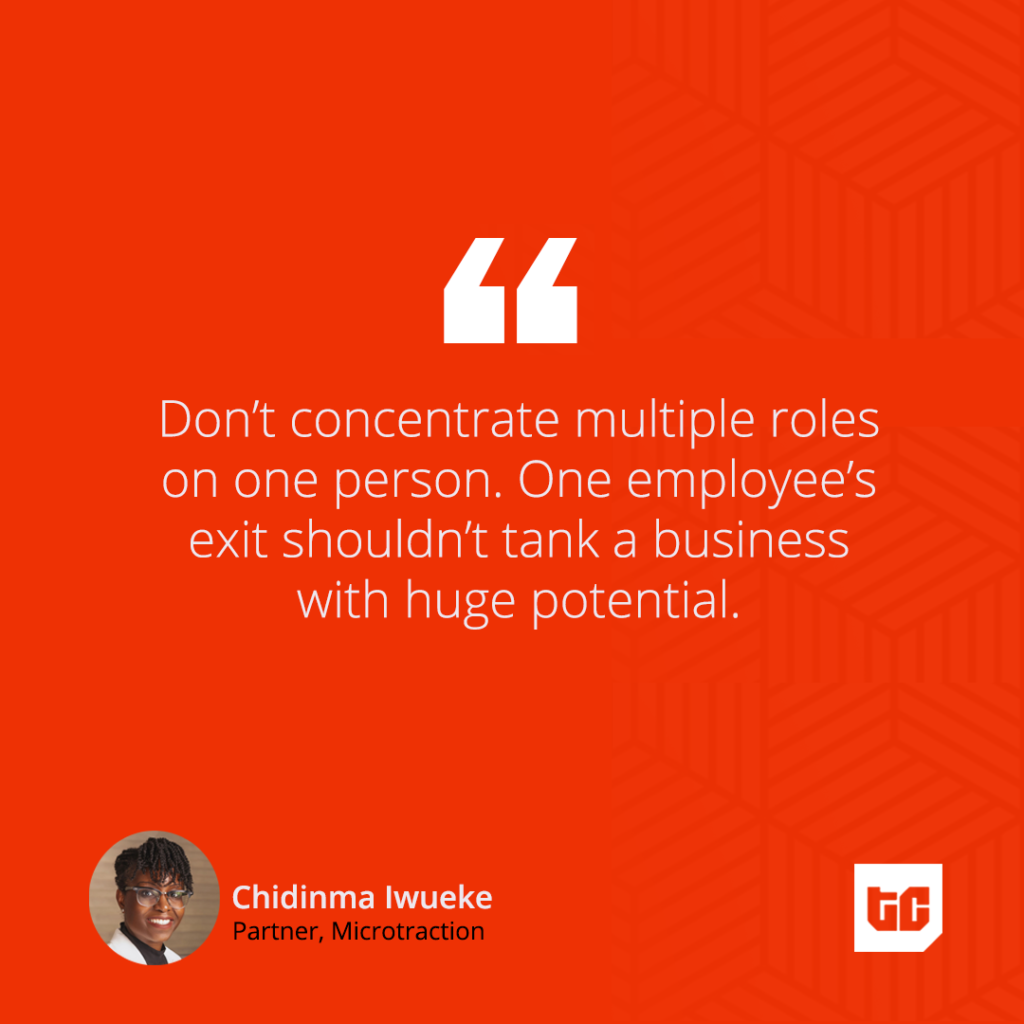
Having run businesses before switching to the funding table, Microtraction’s partners identify pitfalls to be avoided:
Never ever outsource your technical development, Koleowo says, because it will mean tying your fate to someone else who may often be busy.
Don’t concentrate multiple roles on one person, Iwueke advises. One employee’s exit shouldn’t tank a business with huge potential.
Be sure of your market, the team says. While it is fancy to have high-sounding estimates, investors are impressed by bottom-up evaluations that capture the real size of the market.
It’s a gamble for Microtraction to hand out first checks that may never yield returns. Many factors could prove detrimental to a carefully evaluated and approved investment. But Africa is at a stage where confidence is necessary. “We are happy to take that risk,” Koleowo says.









